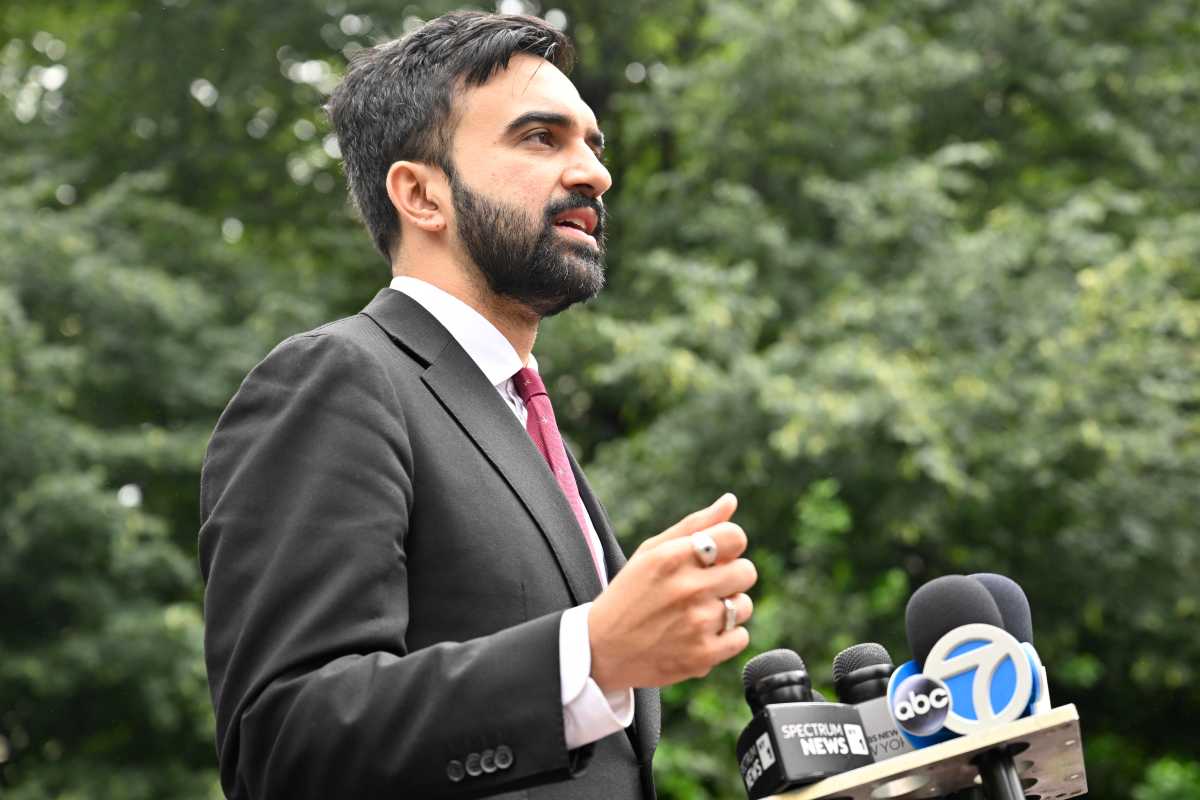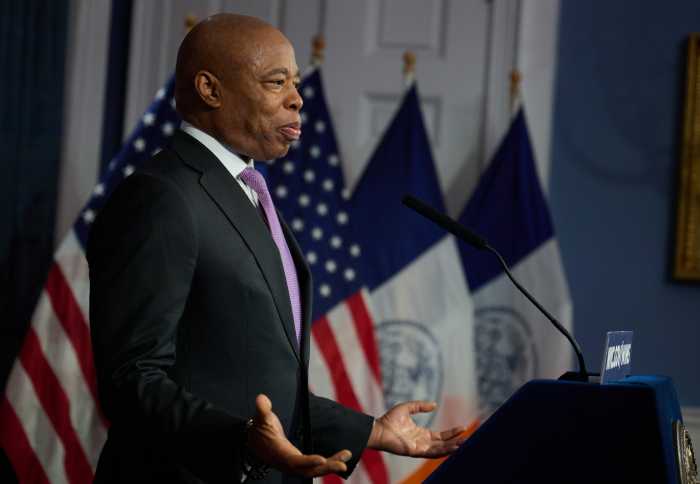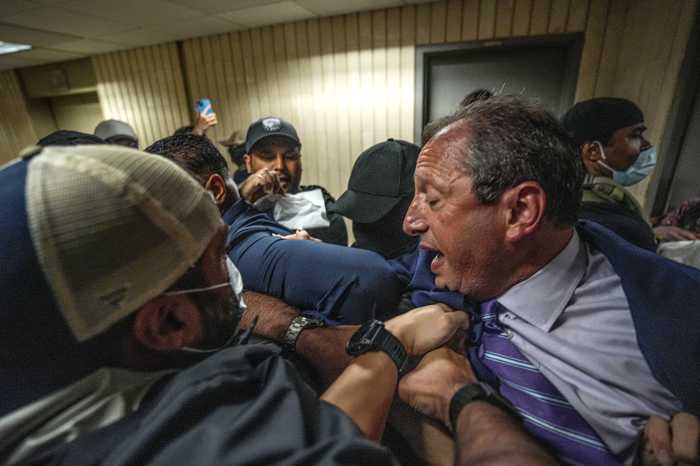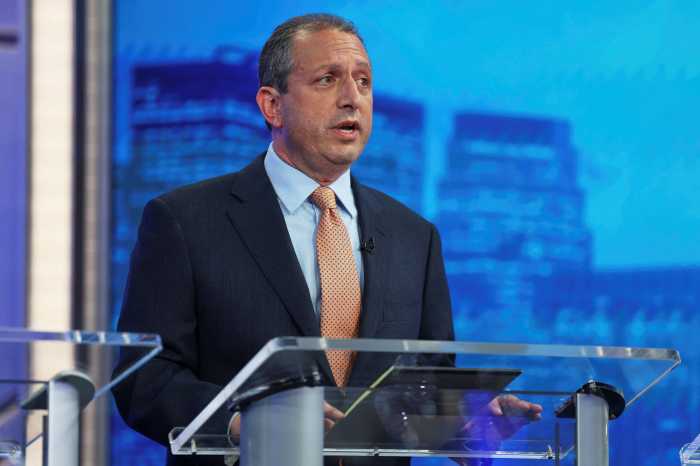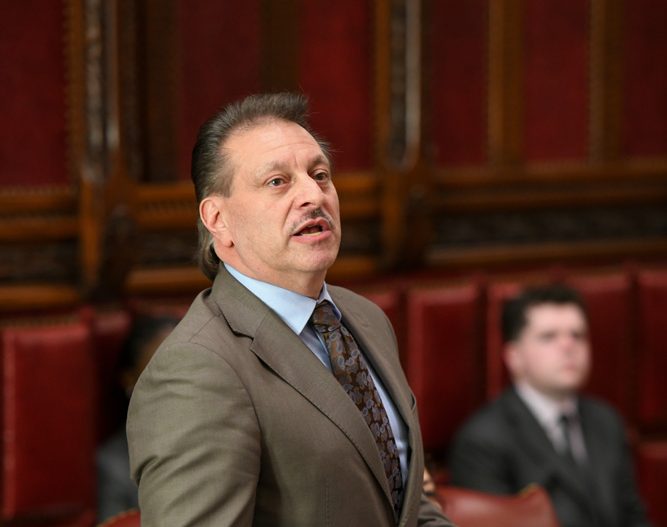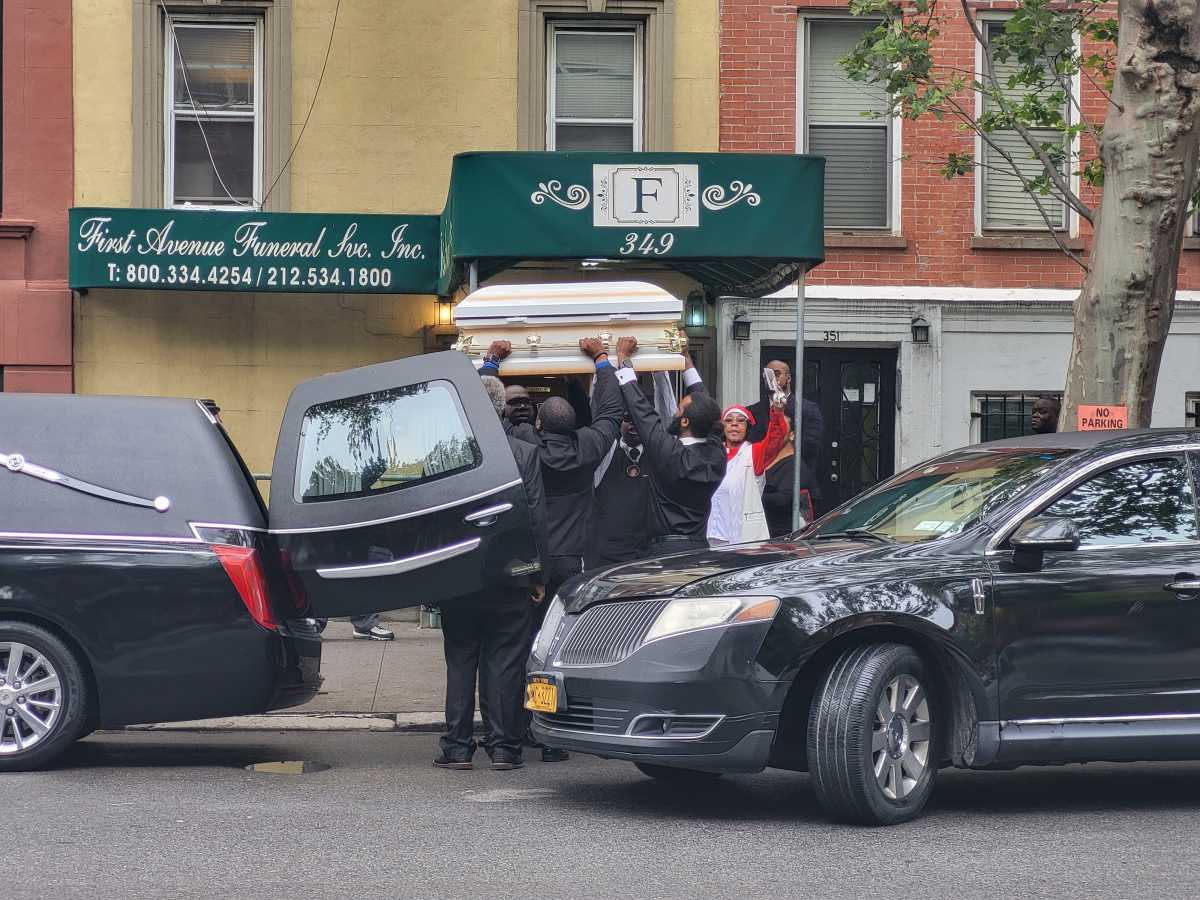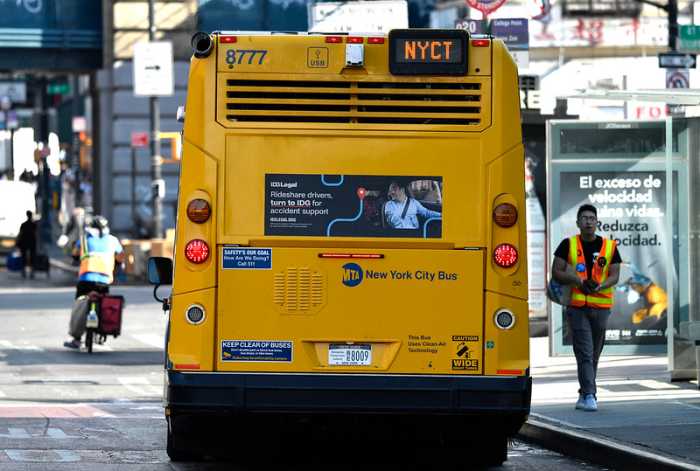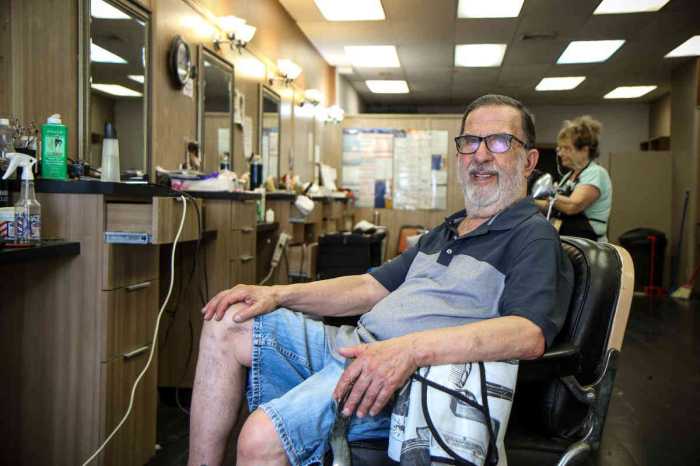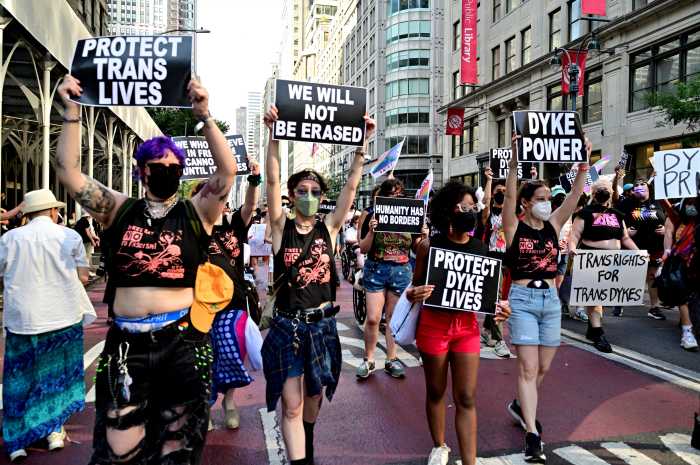Democratic socialist Zohran Mamdani’s unlikely victory in Tuesday’s mayoral Democratic primary raised various concerns about the 33-year-old Assembly member’s economic policy and comparative lack of experience in politics. He had run a campaign focused on affordability, housing and transportation.
In the weeks leading up to the primary election, however, much of the conversation surrounding Mamdani’s candidacy revolved around his stances and remarks on Israel’s war in Gaza.
Mamdani has declined to outright condemn the phrase “globalize the intifada,” leading some New York Jewish leaders to accuse him of antisemitism. The Assembly member, when asked on CBS’s “The Late Show with Stephen Colbert” if he believes Israel has the right to exist, said, “Like all nations, I believe it has a right to exist, and a responsibility also to uphold international law.” He has referred to Israel’s war in Gaza as a “genocide” and been deeply critical of Israel’s far-right Prime Minister Benjamin Netanyahu.
Mamdani has said that he personally does not use the phrase “globalize the intifada,” a phrase many Jews consider to be a clarion call for war with Israel and her allies, but said the phrase is not inherently a call for violence against Jewish people. Instead, Mamdani contended that the phrase means, to some, “a desperate desire for equality and equal rights in standing up for Palestinian human rights.”
Though Mamdani cruised to apparent victory in the primary election, former Gov. Andrew Cuomo — who had made support for Israel a key aspect of his campaign — saw some of his strongest support in NYC neighborhoods with greater segments of Jewish voters.
Various Jewish leaders and organizations have expressed concern with Mamdani’s rhetoric surrounding Israel, with some accusing the candidate of antisemitism and others expressing concern that, though Mamdani might mean no harm, he lacks an understanding of the concerns surrounding his candidacy.
amNewYork reached out to the Mamdani campaign for comment on this story and is awaiting a response.
However, during an appearance on NBC’s Meet the Press Sunday morning, Mamdani — when pressed if he condemned the use of the phrase “globalize the intifada,” said the phrase is not “language I would use,” but his concern about outright condemning it would put him in a place he says President Donald Trump is bringing the country toward — a crackdown on language and free speech at large.
“My concern is to start to walk down the line of language, and making clear what language I believe is permissible or impermissible, takes me to the place similar to that of the pres who is looking to do those very kinds of things — putting people in jail for writing an op-ed, putting them in jail for protesting,” Mamdani said, referencing the cases of Rümeysa Öztürk and Mahmoud Khalil, respectively. “Ultimately, it’s not language I use. It’s language that I understand there are concerns about, and what I will do is showcase my vision for this city through my words and actions.”
Mamdani also repeated a commitment to fighting hate crimes in New York City if elected mayor, “and make clear that there is no room for antisemitism in this city.”
“We have to root out bigotry, and we have to do that through actions,” not words, the lawmaker said.
Were Mamdani’s remarks ‘really distorted’?
Jay Michaelson, a rabbi and journalist who argued in a Wednesday op-ed in The Forward that Mamdani’s victory is “an opportunity for Jews to relearn the art of disagreement,” said he understands the fear that many Jewish New Yorkers are feeling about Mamdani but hopes to see more constructive conversation.
“Obviously, American Jews have plenty of good reasons to be traumatized, especially in the last couple of years,” Michaelson said. “That should be the beginning of our exploration of our opinions, not the end.”
Michaelson, who wrote in his op-ed that there’s no evidence that Mamdani is antisemitic and has in fact been endorsed and supported by prominent Jewish New Yorkers, said he sees the accusations leveled at Mamdani as part of a broader project to “use those fears for political ends.”
“The proposals that he’s put out, whether we like them or not, whether we think they’re going to succeed or not, those are all aimed at just helping people make ends meet,” Michaelson said. “That’s what he ran on, that’s what he won on. But it is true that in the Jewish community, it got really distorted.”
Michaelson said the fact that some people he spoke to “were treating this as if it was a referendum on Israel-Palestine” is a “sign of this trauma that the community is still working with.” He found Mamdani’s statements speaking out against antisemitism, particularly in the immediate lead-up to the election, “really moving and really compelling.”
Mamdani spoke frequently toward the end of the primary campaign about his dedication to curbing hate crimes and antisemitic hate in addition to battling rising discrimination against other groups, including Muslim New Yorkers and Palestinian New Yorkers. Mamdani was cross-endorsed by City Comptroller Brad Lander, who is Jewish and who said on election night that “we are not going to let anyone divide Muslim New Yorkers and Jewish New Yorkers.”
“Our safety, our hopes and our freedoms are bound up together. Don’t get it twisted,” Lander said after Mamdani’s victory.
As for Mamdani’s defense of the phrase “globalize the intifada,” Michaelson said he thinks the language deserves a stronger explanation from the candidate.
“I think his explanation of the phrase ‘globalize the intifada’ is really insufficient,” Michaelson said. “He can say it means what he thinks it means. But the reality is, the Palestinian intifada has been a violent movement for most of the last 30 years. And when people hear globalize the intifada, Jews hear that they’re targets.”
Fears of a ‘Jewish exodus’ from NYC over Mamdani

Rabbi Marc Schneier, president of the Foundation for Ethnic Understanding and a rabbi who previously served as vice president of the World Jewish Congress, said he is “very concerned” about the primary win and anticipates Mamdani’s election would lead to a “Jewish exodus” from New York City.
“I can only imagine a Mamdani administration when there would be protests at NYU or Columbia, imagine a Mayor Mamdani when Israel is either at war or having to confront its neighbors in the Middle East,” Schneier said. “Imagine a Mamdani mayoralty when the Prime Minister of Israel visits New York.”
For Schneier, Mamdani’s refusal to condemn the phrase “globalize the intifada” is dangerous for Jewish New Yorkers. He noted that Mamdani’s explanation of the phrase “globalize the intifada” was condemned by the U.S. Holocaust Museum. When discussing the phrase, Mamdani had pointed out that the museum had previously used the word “intifada” in Arabic language accounts of the 1943 Warsaw Ghetto Uprising against Nazi Germany.
“Exploiting the Museum and the Warsaw Ghetto Uprising to sanitize ‘globalize the intifada’ is outrageous and especially offensive to survivors,” the museum wrote in a June 18 post on X. “Since 1987, Jews have been attacked and murdered under its banner. All leaders must condemn its use and the abuse of history.”
Schneier said that friends and several members of his congregation have begun discussing plans to leave New York City over concerns for rising antisemitism.
“If you’re rebuked by the United States Holocaust Museum in Washington — which, they simply do not enter the political fray — for words that you’ve said, that’s a pretty serious response in the Jewish community,” said Schneier, who had supported Cuomo’s campaign.
After the condemnation from the museum, Mamdani gave an emotional response to the topic when asked at a press conference and said that it “pains me to be called an antisemite.”
“I’ve said at every opportunity that there is no room for antisemitism in this city, in this country. I’ve said that because that is something I personally believe,” he said at the June 19 press conference, also discussing Islamophobic rhetoric and threats he had encountered on the campaign trail.
Making sense of the discourse
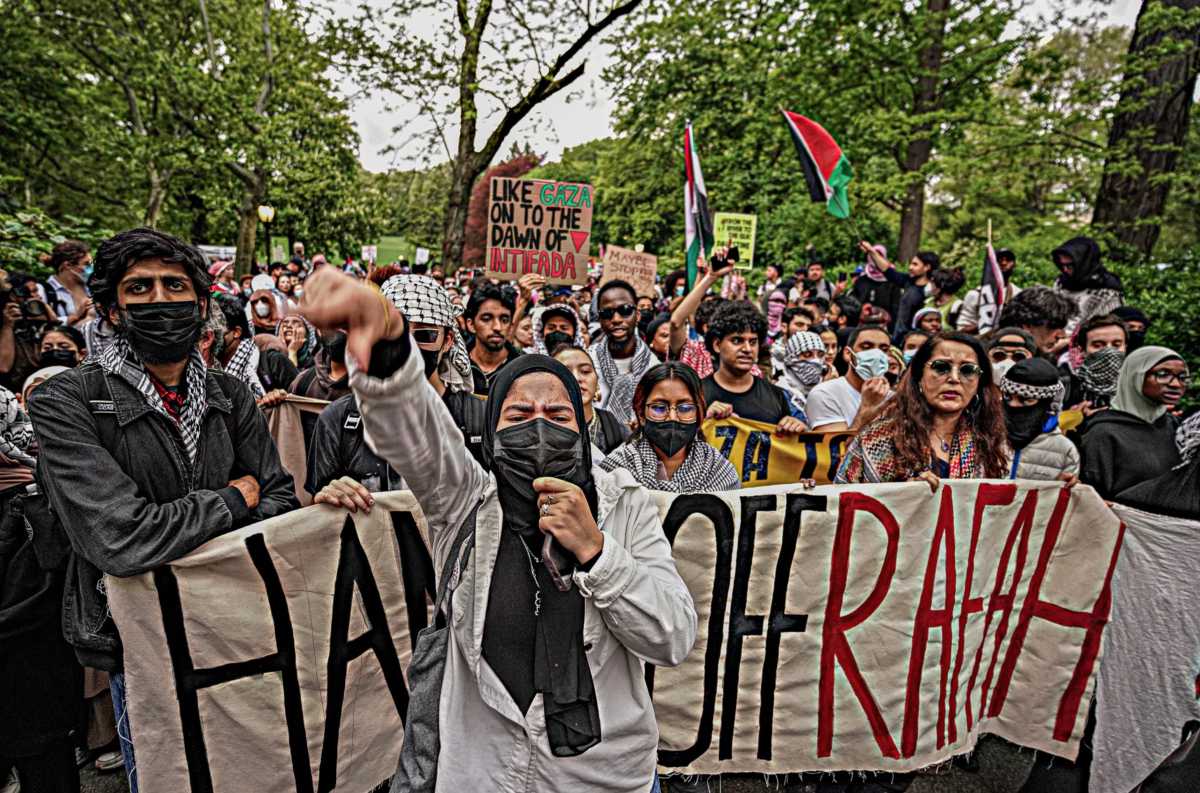
Various Jewish groups and organizations had expressed concerns about Mamdani’s candidacy in the lead-up to the election, citing his criticisms of Israel and his refusal to outright condemn the phrase “globalize this intifada.” The remarks sparked a larger conversation about the responsibility carried by the mayor of New York City to publicly defend Israel in addition to standing up locally for Jewish New Yorkers.
The American Jewish Committee New York wrote in a Wednesday statement that “many Jewish New Yorkers are rightly concerned about the dramatic rise of antisemitism in their city and the very real safety concerns that impact Jews daily.”
“The next mayor of New York City must take those concerns seriously and must not contribute to an environment that accepts – or even worse, fosters – antisemitism,” the statement reads. “We will continue to confront rhetoric or actions of candidates or elected officials that are contrary to these obligations.”
Phylisa Wisdom, the executive director of New York Jewish Agenda, said that this election cycle, NYJA “understood that antisemitism and Israel and the whole region were on the agenda in a way that we’re really not accustomed to.”
“People were on edge knowing that a lot of political discourse about things we care really deeply about was swirling around,” Wisdom said. “We’re just trying to help our community make sense of that.”
Wisdom co-authored an op-ed earlier this month with Rabbi Sharon Kleinbaum titled “Calling balls and strikes on charges of antisemitism.” The piece asserted that the “Jewish community needs candidates who treat our safety seriously,” which, to Wisdom and Kleinbaum, includes calling out “efforts to oversimplify or misconstrue the Jewish community’s wide-ranging positions on antisemitism and Israel.”
“While it is not necessarily antisemitic to criticize Israel, there are those who are antisemitic who use criticism of Israel as a mask for their antisemitism,” read the op-ed, which was published in City and State NY. “It can be very confusing to those who are witnessing the debate. We are committed to helping reasonable people understand the nuance.”
Wisdom noted the current division within the Democratic Party on the topic of Israel’s war in Gaza.
“There is not a uniform Democratic Party position on Israel at this moment. So that was really reflected in the range of primary candidates that we saw,” Wisdom said. “It felt like at some points was that the whole city was having a conversation that we’ve been having as a community for a really long time about, ‘What does it look like to support Israel?'”
As for the extent to which New Yorkers factored the candidates’ stance on Israel into their ballots, Wisdom said the issue’s impact on the outcome of the election was “probably overblown.”
“But I think it’s definitely true that Jewish and non-Jewish New Yorkers were thinking about candidates in terms of their relationship to and views on Israel in a way we’re not used to,” Wisdom said.
Wisdom said that NYJA is focused on encouraging dialogue across disagreement and a willingness to work together amid disagreements over Israel.
“We are not necessarily accustomed to having a mayor that agrees with us on every single thing about Jewish safety and Israel, and that’s okay. We’ve seen that,” Wisdom said. “What’s important is that our voices are welcome and our perspectives are entertained, and whoever is the mayor, the Jewish community should try to work with them and make sure that they understand us and there’s mutual respect and open dialogue.”
Jewish New Yorkers defending and supporting Mamdani
Sophie Ellman-Golan, the director of strategic communications at Jews for Racial and Economic Justice (JFREJ), which endorsed Mamdani and Lander, said Mamdani has been subject to unfair attacks on his character.
“I think a lot of the fear-mongering and smears we’ve seen about Zohran do not square with the person we know him to be and frankly, don’t square with what he has actually said on the record,” Ellman-Golan said.
JFREJ knocked on 4,000 doors and made 35,000 phone calls in their support of the Mamdani and Lander’s campaigns.
“Certainly, questions around antisemitism and Israel-Palestine came up at the door, but what also came up were the same issues that come up for all New Yorkers, the questions of affordability and safety and transit and child care and housing,” Ellman-Golan said. “Zohran ran a powerful, impressive and compelling campaign on affordability and housing, and on the material conditions that New Yorkers are facing and Jewish New Yorkers are also facing those material conditions.”
Ellman-Golan emphasized a priority to “not conflate Israel and Jews.”
“You can’t tell people how to feel; they’re going to feel how they feel,” Ellman-Golan said. “What I would urge my fellow Jewish New Yorkers to do is actually listen to Zohran Mamdani’s words.”
Ellman-Golan encourages people to “look past the caricature” of Mamdani and “listen to the person himself.”
“I don’t see how being in a constant state of terror makes us safer,” Ellman-Golan said. “I care deeply about Jewish safety, as does Zohran, and I’d like us to think about, ‘What are the things that actually make us safer?’ Not, ‘What are the ways that we can demonize our neighbors and police people’s speech?'”



